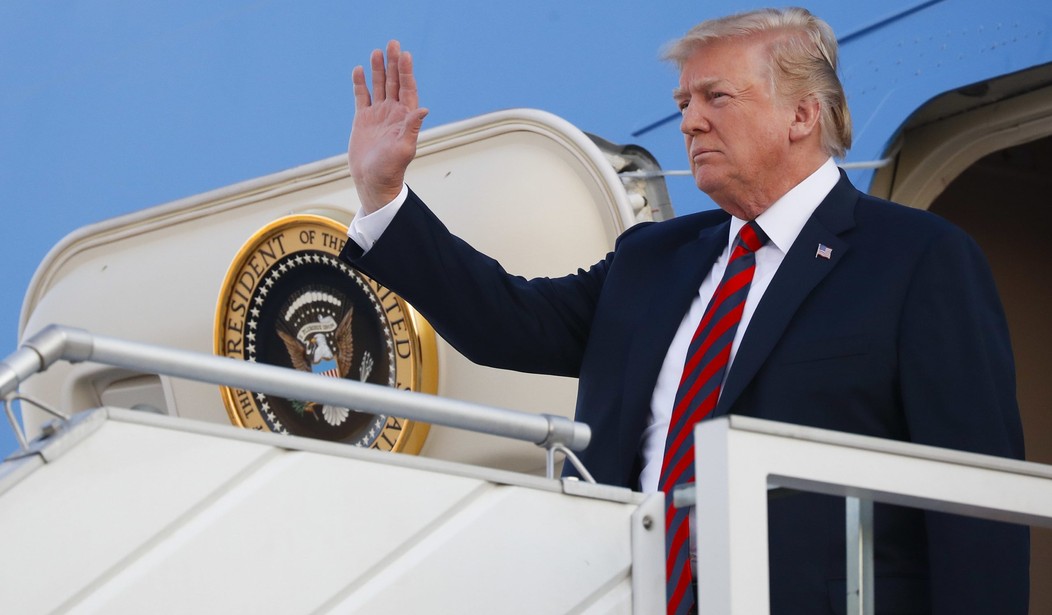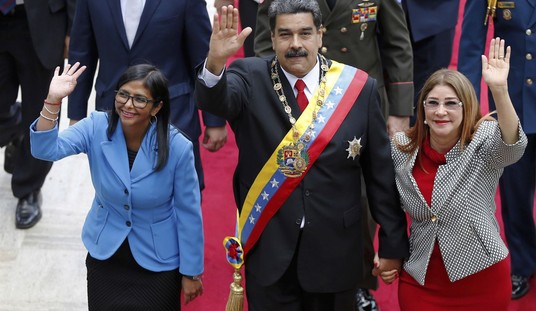Yes, you read that right — Trump, in essence, defended American voters with his conciliatory comments about interference in the U.S. presidential election. This wasn’t his only motivation — there were others — but one thing is for certain: none of them were “treason.”
The most obvious motivation was Trump’s standard business modus operandi of taking the psychological high ground by complimenting the man on the other side of the table. Through praise and pacification, Trump hopes his adversary will let down his guard to allow for more communication and negotiation, or hopes he will be distracted while Trump plans harsher methods in the future.
This isn’t 3-D chess. It’s a simple tactic. Personally, I don’t favor it because it’s too much like the appeasement policies of former administrations, but my only solace is these are only words and should be taken with a grain of salt, especially in these dog-and-pony-show political moments. Whether Trump will actually pacify with a lame reset as President Obama and Hillary Clinton did is yet to be seen. So far, this appeasement hasn’t translated into foreign policy.
Second, context matters. Trump didn’t just plop down in Helsinki and criticize America’s intelligence community and give Putin leeway when it comes to the Russian government meddling in the U.S. election on a whim. This meeting came after two years of unprecedented investigation of a presidential candidate and a president who has been accused of colluding with a foreign government based only on opposition research by the Democratic Party and Clinton campaign.
The media leaks, counterintelligence investigation, improper FISA warrants, use of spies before a full investigation has even begun, a special counsel probe into collusion without evidence of a crime, biased investigators, more media leaks, and hounding of the president at every step by the intelligence community have disrupted our political system far more than any Russian meddling could — meddling that wasn’t new to 2016, by the way.
The fact is, despite the many indictments in the investigation, there have been no charges of collusion and no evidence of collusion, but the narrative of collusion continues. Trump’s election by the American people has been repeatedly questioned and his presidency targeted for delegitimization by individuals wielding a great deal of power in secret. Even now, calls for impeachment based on thin air are ringing across the media and in the halls of government.
This false narrative has been driven by members of the FBI and the intel community who had a hand in propping up false evidence in an investigation, and who worked with foreign governments to gather information in a case against Trump with no basis in fact. In the words of FBI special agent Peter Strzok: “We will stop him!”
This effort to malign, sabotage, and then seek to remove a duly elected president based on no evidence of collusion or wrongdoing is an attack on the American voter. It’s not about Trump, it’s about them, because they put him there.
We have already been told by reliable authorities that interference by Russians in the election did not change the vote of the American people. We voted, and the result was the election of Donald Trump. Fair and square. Yet, continued investigations into collusion question the decision of half of the country.
What right do these creeping authoritarians have to undermine the will of the American people? That’s right — none!
No doubt, this was a motivation as Trump stood beside Putin to discuss election meddling. His thought wasn’t to defend Putin, though that was the context of his conciliatory tactics for negotiations. His purpose was to defend the American voter and himself. Could he have done it in a way that wasn’t so controversial? I think so, but nothing short of calling Russia the “evil empire” — which ironically Democrats abhorred when Reagan did it — would have been satisfactory.
Trump did not attack the United States or U.S. institutions. He attacked people who are misusing the power of those institutions for their own political purposes — to slander opponents and delegitimize anyone who stands in the way of their agenda.
Finally, this disruption has created a feeding frenzy among Americans to rip Russia to shreds. The hostility coming from typically passive and Russia-appeasing groups and politicians is truly a sight to behold. Trump is bothered by this because he is, at the core, a pragmatist who would like to see the two most powerful nations on the planet at peace, or at least not aiming nuclear weapons at each other in a second cold war.
Trump might be naive in his hopes for a good relationship with Russia, but this is no different than the hopes of George W. Bush or Barack Obama. It’s no different than many presidents throughout history, as they have dealt with hostile foreign powers. Good presidents want peace. They want negotiation before conflict. They want open dialogue and a measure of respect before launching into accusation and war.
The rising tide of fear and anger toward Russia based on the false allegation that Putin colluded with Trump does nothing to help build bridges. This does not mean we shouldn’t be angry about Russians meddling in our elections — and they have, though we still have no proof the Russian government was involved. They probably were because they’re involved in everything that happens in Russia, but we have yet to produce evidence.
Regardless, we need to be vigilant in protecting the sanctity of our democracy and hold those to account who threaten it. But this hasn’t been the concern that has elevated the passions of Trump’s critics — it’s “collusion” and, to a lesser degree, the hacking of the DNC computers, the only crime that occurred in this whole mess.
But even this is suspect. The intelligence community, the FBI, and the Department of Homeland Security have not taken one peep at the scene of the crime. The DNC computer system was examined by a private company closely associated with the Obama administration and the DNC.
No objective entity has looked at the server — U.S. investigators are acting on secondhand information.
This doesn’t mean the Russians didn’t do it, but this ongoing refusal by law enforcement to do its job has created doubt about the motives of investigators.
Whatever happened with the hacking, interference certainly occurred in our election. Obama let it happen, looking the other way. But we have to be honest with one another, it’s not Russian meddling that has most Trump critics up in arms. They know this is nothing new, and they know if they only focused on that issue, Obama would be the one responsible. What they’re really rabid about is collusion. But it’s a bunch of sound and fury over nothing. It’s a big lie.
Trump knows it and was no doubt thinking about this point when questions about the election came up. Given his personality and his goals, he wasn’t about to give the very people who have hounded him for nearly two years one iota of credibility. Call this bad timing, inappropriate, unwise — but don’t for one minute call it treasonous.








Join the conversation as a VIP Member